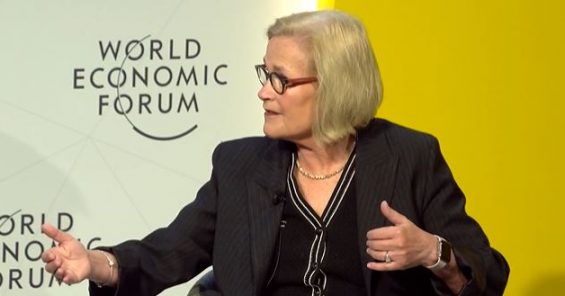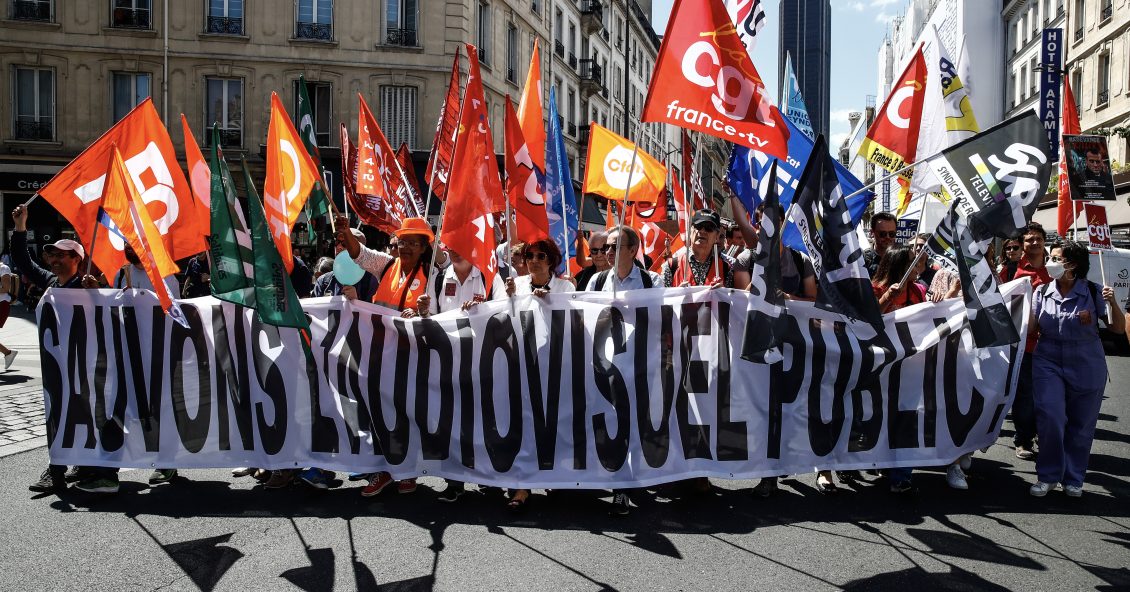UNI in Davos: Worker empowerment is necessary to fix a fractured world
20.01.23
UNI Global Union General Secretary Christy Hoffman carried an urgent message to the World Economic Forum meeting in Davos this year: Unions are vital to fixing a fragmented world.
As the WEF kicked off its annual week-long gathering on 16 January, Oxfam International released a report, Survival of the Richest, underscoring Hoffman’s point. The global anti-poverty organization found that the richest 1 per cent captured nearly two-thirds of all new wealth created since 2020—almost twice as much money as the bottom 99 per cent of the world’s population.
“Unions are an essential solution to rising inequality—the underlying cause of fragmentation—and the business elite cannot fix a fractured world while suppressing workers’ voices and denying them a seat at the table,” Hoffman said. “This year at Davos there were more—and welcomed—voices which recognized the critical role of collective bargaining, including the German labour minister along with the U.S. labour secretary, Martin Walsh. Let’s hope that businesses heard their messages.”
During the panel “Living Wage for All,” Hoffman discussed how the sustained, decades-long attack on collective bargaining has further heightened this imbalance in wealth and power. But workers globally are launching an unprecedented fight back. Similarly, in the panel on the four-day workweek, Hoffman stressed the importance of bargaining with unions to decide what form of scheduling works best. “There is no “one size fits all” solution.”
“Enthusiasm for collective action and labour unions is the highest it’s been in my lifetime. Working people the world over have faced a deadly virus at their jobs and their families are weathering a generational cost-of-living crisis. Their response has been to rightly demand their fair share,” she said.
Contrary to these demands, central banks are responding to rising prices by hiking interest rates, which threaten to throw economies into recessions and millions of workers out of jobs. For example, the president of European Central Bank promised the Davos crowd to “stay the course” on high rates.
“For many workers, the effects of interest rate hikes will be no pay check instead of a pay check that buys less than it used to. Risking a recession to fight inflation, which is likely temporary, is a cure worse than the disease,” says Hoffman. “Governments around the world should use their regulatory powers to stop corporate profiteering and price gouging, and they should support collective bargaining over wages.”
However, if a recession hits, Hoffman says:
Recessionary forces will not extinguish this desire for dignity and economic justice. In fact, it will push workers to demand more protections.
This means that trade unions have to redouble our efforts to meet workers’ expectations. It means we have to support organizing and expand collective bargaining. We need to show international solidarity with striking workers. We need to amplify the calls to stop corporate profiteering that is pumping up inflation. We have to get investors to honour their responsibilities to protect fundamental human rights like freedom of association and the right to collective bargaining. We must push for legislation that holds corporations accountable to workers throughout their supply chains.


